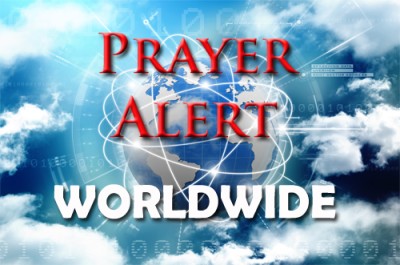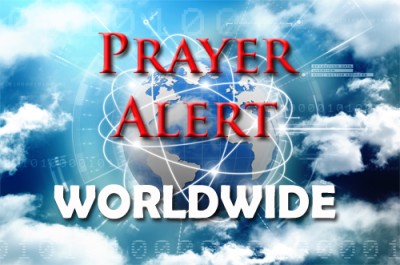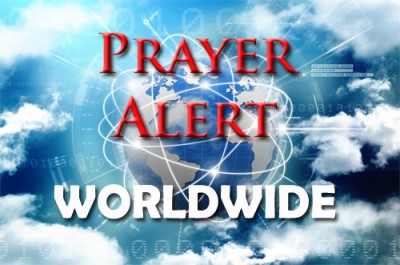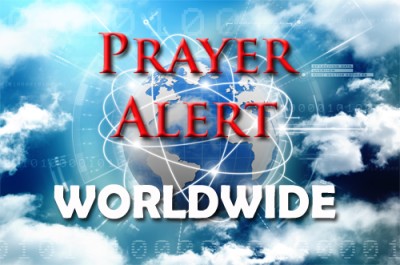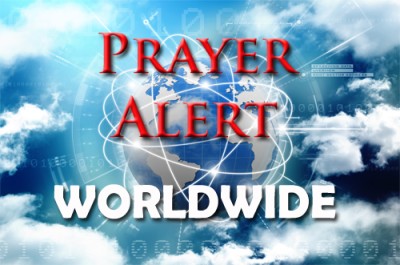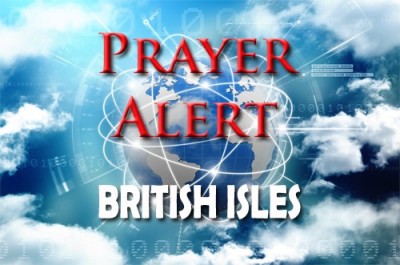Abu Dhabi: rescued Afghan refugees
18 Nov 2021It has been thirty days since two planes flew 545 persecuted Christians and at-risk Afghans out of the country. They are now temporarily housed in Abu Dhabi. They have been given ninety days from when they arrived to leave the country and re-settle. They boarded these flights with nothing more than a handbag. Everything was left behind as they fled to safety. While they are all grateful to be alive, they now face uncertainty; pray for those assisting them with paperwork that must be completed for their resettlement, arrangements for flights out of Abu Dhabi, and temporary housing and living expenses when they land in their new home country. Brazil has emerged as a potential new home for these Afghans. Their rescuers have strong contacts in local churches, and the community there is ready to step up and serve as the Body of Christ, welcoming this group of refugees.
Church leadership: different levels of training
18 Nov 2021A renowned and well-established research institution found only 5% of pastors/priests in every worldwide Christian tradition have theological training with a recognised degree. 90% of pastors only have some kind of informal or non-formal theological education. Formal theological education has a clearly defined programme, curriculum, exams, degrees, and associated accreditation processes. The thousands of informal programmes have nothing similar; there are no guidelines, no standards, and no outcomes that could be globally accepted. Each one does what it considers best. Often the concepts and beliefs of the founders or leaders of each denomination or mission agency determine how the various training programmes are carried out. One teacher and missionary leader stated publicly that he had personally trained more than 15,000 pastors for ministry; each pastor received about six weeks of training, and were then ordained as pastors. He and his board believe that such training is sufficient.
India: Zika outbreak in Uttar Pradesh
18 Nov 2021As of 9 November there were 89 new cases of the Zika virus in the city of Kanpur, Uttar Pradesh (UP). This is the first time they have found Zika in UP. Health officials said it can quickly spread through the population of 204 million. Mosquitoes spread Zika, and it can also be sexually transmitted. There is no cure, so they must rid the area of mosquitoes quickly. Symptoms include fever, joint head and muscle pain, rash and conjunctivitis. Pregnant women who catch Zika can have babies born with severe disabilities, such as abnormally small heads or underdeveloped brains. Zika is also linked to an auto-immune disease that causes the body to attack its immunities. Pray for healthy babies to be born to women in UP. Several teams are trying to contain the spread with very aggressive contact tracing, and there are additional teams eliminating the mosquitoes’ breeding grounds.
India: floods and deaths in Chennai
18 Nov 2021This year’s rainy season in Chennai is as heavy as 2015, when 200 people died in floods. Fortunately, the death count is lower this time, but heavy rains are still pounding the area, so the danger continues. Uprooted trees block roads, cars are damaged, and people wade through knee-high water. The rains are taxing the infrastructure. To avoid the danger of electrocution, the government shut down the power grid in some areas. If the rains continue, other low-lying areas of Chennai will be in danger. Pray for God's mercy for those who are most vulnerable to flooding, cholera, and electrocution. Illegal building has left Chennai vulnerable to flood damage; pray for God to raise up righteous decision-makers. Pray for those suffering amid days of stagnant waterlogging and no power. ‘Drainage water is mixed with rainwater, causing odour, and a lot of insects and snakes are coming into the house,’ said a local.
Security forces in Uganda have shot dead a Muslim cleric, Sheikh Muhammad Abas Kirevu, accused of working with an armed group linked to suicide bombings in Kampala. He had recruited for cells run by the Allied Democratic Forces (ADF) - rebels who have pledged allegiance to IS. On 16 November four people were killed and over thirty injured by attackers on motorbikes who blew themselves up in the city: IS claimed responsibility, but officials have blamed the ADF. Twenty-one people have been arrested since the attack, in what police have described as the dismantling of ADF terrorist cells in Kampala and across the country. A police spokesperson said 13 suspects, including several children, had been intercepted while trying to cross the border into DR Congo. Also, on 17 November four suspected ADF operatives were killed near the border.
Ministry to disabled sees surge in growth
11 Nov 20212.25 million disabled Americans should attend church, but don’t. Calvary Community is oriented towards people with ‘special abilities’. Their families drive long distances to get there. As a result, church growth has surged. ‘It just really exploded,’ said Pastor Gina. ‘We have a heart to help. The church understands the value of people with special abilities. ‘They have a straightforward clear understanding of the love of God. They’re not bogged down by noise, politics, or anything that can confuse who God is. Their childlike faith reminds us how simple the love of God can be. They help us understand what it means to serve someone who can’t serve us back.’ The community has 300 volunteers actively seeking and serving people with special abilities. The results speak for themselves. The church now has a database of 700 families with one or more child or adult with special abilities, and they train and help other churches develop special programmes.
Youth mission trip saves a witchdoctor
11 Nov 2021Pastor Brant Cole took a team of teenagers to their sister church in Haiti. The night before they were to leave, Brant felt there was still something left that God wanted to do. As they drove through a village he saw a woman and stopped the truck; he needed to tell her about Jesus. The woman said she couldn’t receive Jesus; she was indebted to the devil. They told her repeatedly, ‘Christ died to take away every debt and sin in our past.’ Surprisingly, she invited them to her house. After sharing the gospel with her more fully, the power of the Word and Spirit burst into her and she was born again. Later, they discovered she was the local witchdoctor. Other Christians had witnessed the love of God to her for years, but she had refused. Then God brought a little team of willing teenagers from a distant land and created a miracle.
Seeds of prayer: Brexit and climate change
11 Nov 2021Brexit is having both expected and unexpected impacts on trade in agricultural and food products, and is blamed even when other factors may be at play (current fisheries dispute, lorry drivers shortage, increased red tape and costs in trading with the EU). Trade thrives on trust. Honesty and fairness in buying and selling are pleasing to God and make for a good society (Leviticus 19:36). Pray for all seeking to resolve trade disputes and for all affected by them, for peace, truth and equity to prevail in trade negotiations, and for Christians in trade to shine as lights of integrity and reconciliation. The UK's net zero strategy will profoundly impact farming and the countryside. The Lord has promised ‘seed time and harvest while the earth remains’ but holds us responsible for our stewardship of the earth (Genesis 1:28, 2:15; Revelation 11:18). Unlike some of today’s environmentalists, we have a message of hope. Large numbers of Christians are praying and present at COP26.
